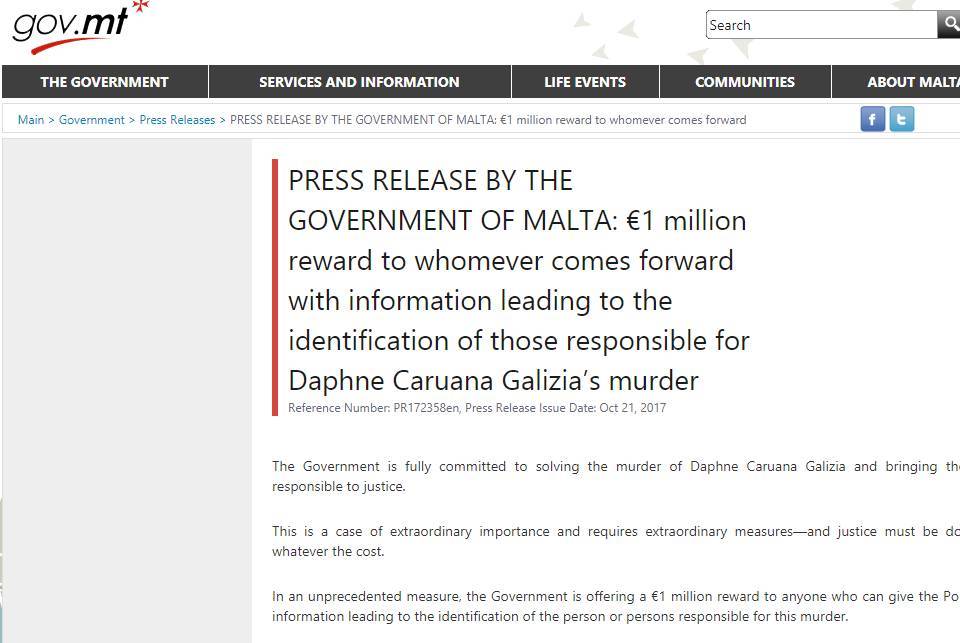 Malta's government has offered a reward for information on the murder of Daphne Caruana Galizia. [picture: Government of Malta website]
Malta's government has offered a reward for information on the murder of Daphne Caruana Galizia. [picture: Government of Malta website]
If Daphne Caruana Galizia, the Maltese journalist/blogger, was murdered in order to silence her, those responsible have made a serious miscalculation. Since her death, the issues and concerns she raised so fiercely have come under even more intense international scrutiny than when she was alive.
Until news of her brutal killing reverberated across the world, most outsiders regarded Malta as a safe, uncontroversial, popular tourist destination. However, in Malta, Caruana Galizia was known for her fiercely uncompromising exposés of corruption at every level. Even the Prime Minister and his wife, the opposition leader, senior members of the judiciary, business leaders and those in the growing gaming industry were among her targets. Only an hour before her death she wrote: ‘There are crooks everywhere you look now. The situation is desperate.’
A senior journalist who knew her well recalls: ‘Daphne had a mighty pen. She wrote flowing, well-structured prose that bit to the bone. Frighteningly frank, she was not afraid to get personal on her subjects. She tested the boundaries of the Press Law, going beyond what many would tolerate, and faced countless actions for libel by politicians and individuals who felt offended.’ He goes on to say that she was adored by many, but hated and feared in equal measure. She revealed so much that would otherwise never have seen the light of day—and in consummate detail.
Caruana Galizia had written about links between some of Malta’s leading figures and offshore tax havens named in the Panama Papers’ leaks. Yet it is difficult to point a finger at a single, outstanding suspect who would go so far as to order her ’assassination’. Two weeks before her car was blown up, she asked for police protection, saying she had received death threats. Her appeal went unheeded. There was speculation locally that something she was working on just before her untimely death that could have been the trigger.
The killing of Caruana Galizia is significant because this is the first time a journalist has been murdered in Malta. While the killing of journalists is sadly becoming commonplace in countries like Pakistan, India and Bangladesh, or even the Middle East, Turkey and Russia, it is relatively rare in the West. The other European case that attracted widespread publicity was the killing in 1996 of Veronica Guerin, an Irish crime reporter, who was murdered by drug lords.
Malta prides itself on being a bridge between Europe and Africa. The murder of Caruana Galizia is especially embarrassing for Malta because for the first six months of this year, it held the revolving chair of the European Union; it is the current chair of the Commonwealth and is committed to upholding the values enshrined in the Charter, which include transparency and good governance. Caruana Galizia was exercising her right to freedom of expression by exposing corruption and abuses of power. Some are even describing Malta as a mafia state.
[Rita Payne is a member of the Round Table Editorial Board and the immediate past president of the Commonwealth Journalists Association.]



